If the number of potential identifiers is unknown then one option is to pass the identifiers as a comma delimited string. Unfortunately you will not be able to directly compare the comma delimited string to your source table identifiers, you will first have to split the string of identifiers out into a separate table. This can be done via a table valued function. I found the following split string code example right here on stack overflow that should do the job.
SET ANSI_NULLS ON
GO
SET QUOTED_IDENTIFIER ON
GO
CREATE FUNCTION [dbo].[SplitString]
(@pString NVARCHAR(4000), @pDelimiter NCHAR(1))
RETURNS TABLE WITH SCHEMABINDING AS
RETURN
WITH E1(N) AS (
SELECT 1 UNION ALL SELECT 1 UNION ALL SELECT 1 UNION ALL
SELECT 1 UNION ALL SELECT 1 UNION ALL SELECT 1 UNION ALL
SELECT 1 UNION ALL SELECT 1 UNION ALL SELECT 1 UNION ALL SELECT 1
), --10E+1 or 10 rows
E2(N) AS (SELECT 1 FROM E1 a, E1 b), --10E+2 or 100 rows
E4(N) AS (SELECT 1 FROM E2 a, E2 b), --10E+4 or 10,000 rows max
cteTally(N) AS (--==== This provides the "base" CTE and limits the number of rows right up front
-- for both a performance gain and prevention of accidental "overruns"
SELECT TOP (ISNULL(DATALENGTH(@pString),0)) ROW_NUMBER() OVER (ORDER BY (SELECT NULL)) FROM E4
),
cteStart(N1) AS (--==== This returns N+1 (starting position of each "element" just once for each delimiter)
SELECT 1 UNION ALL
SELECT t.N+1 FROM cteTally t WHERE SUBSTRING(@pString,t.N,1) = @pDelimiter
),
cteLen(N1,L1) AS(--==== Return start and length (for use in substring)
SELECT s.N1,
ISNULL(NULLIF(CHARINDEX(@pDelimiter,@pString,s.N1),0)-s.N1,8000)
FROM cteStart s
)
--===== Do the actual split. The ISNULL/NULLIF combo handles the length for the final element when no delimiter is found.
SELECT ItemNumber = ROW_NUMBER() OVER(ORDER BY l.N1),
Item = SUBSTRING(@pString, l.N1, l.L1)
FROM cteLen l
WHERE SUBSTRING(@pString, l.N1, l.L1) <> ''
;
GO
Once you have added the function to your database you can update your procedure as follow:
ALTER Procedure [db_ddladmin].[spGetVehicles]
(
@ECU nvarchar(20),
@Identifiers nvarchar(20)
)
AS
Begin
SELECT *
FROM db_ddladmin.View_VehicleReadouts where ECU = @ECU
and
Identifier IN (SELECT Item FROM [dbo].[SplitString]( @Identifiers, ',' ) )
END
You can now execute the procedure as follow:
EXEC [db_ddladmin].[spGetVehicles] @ECU = 'EBS7', @Identifiers = '88,89'

